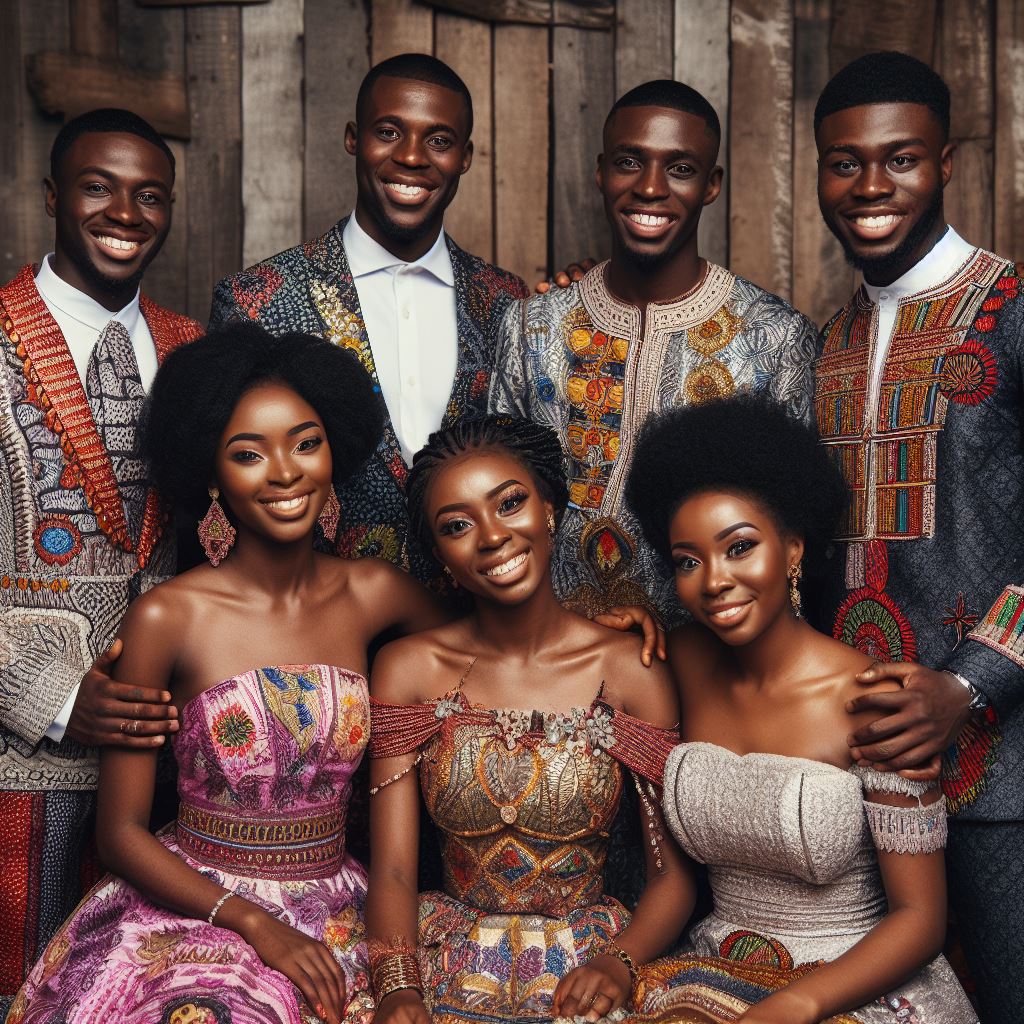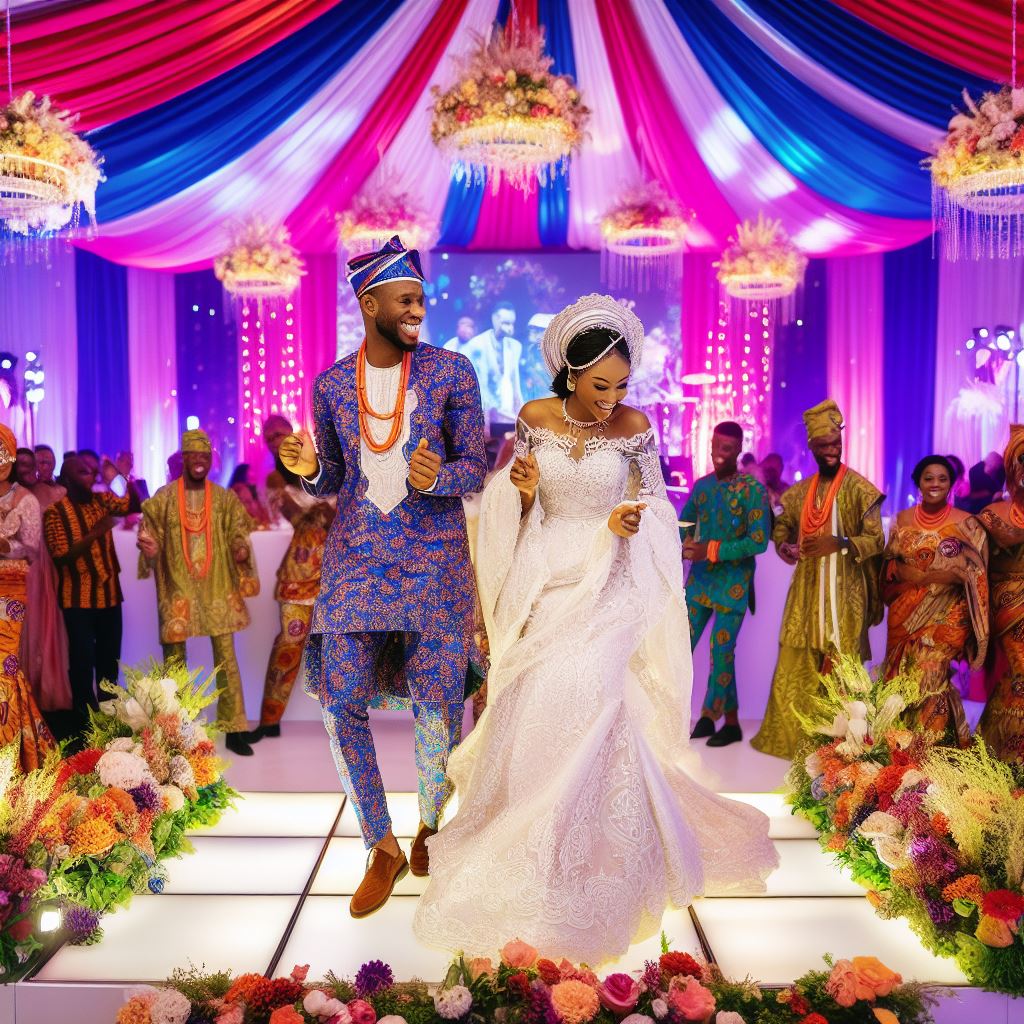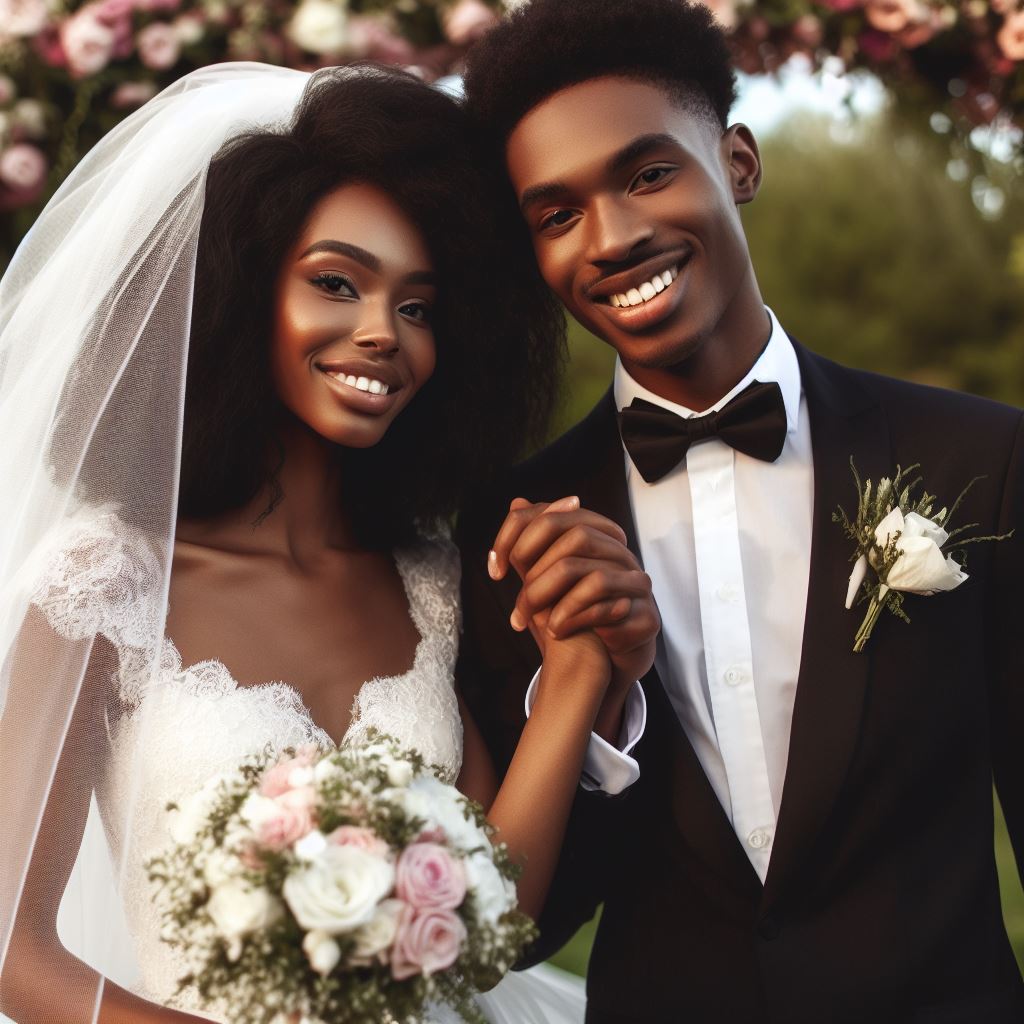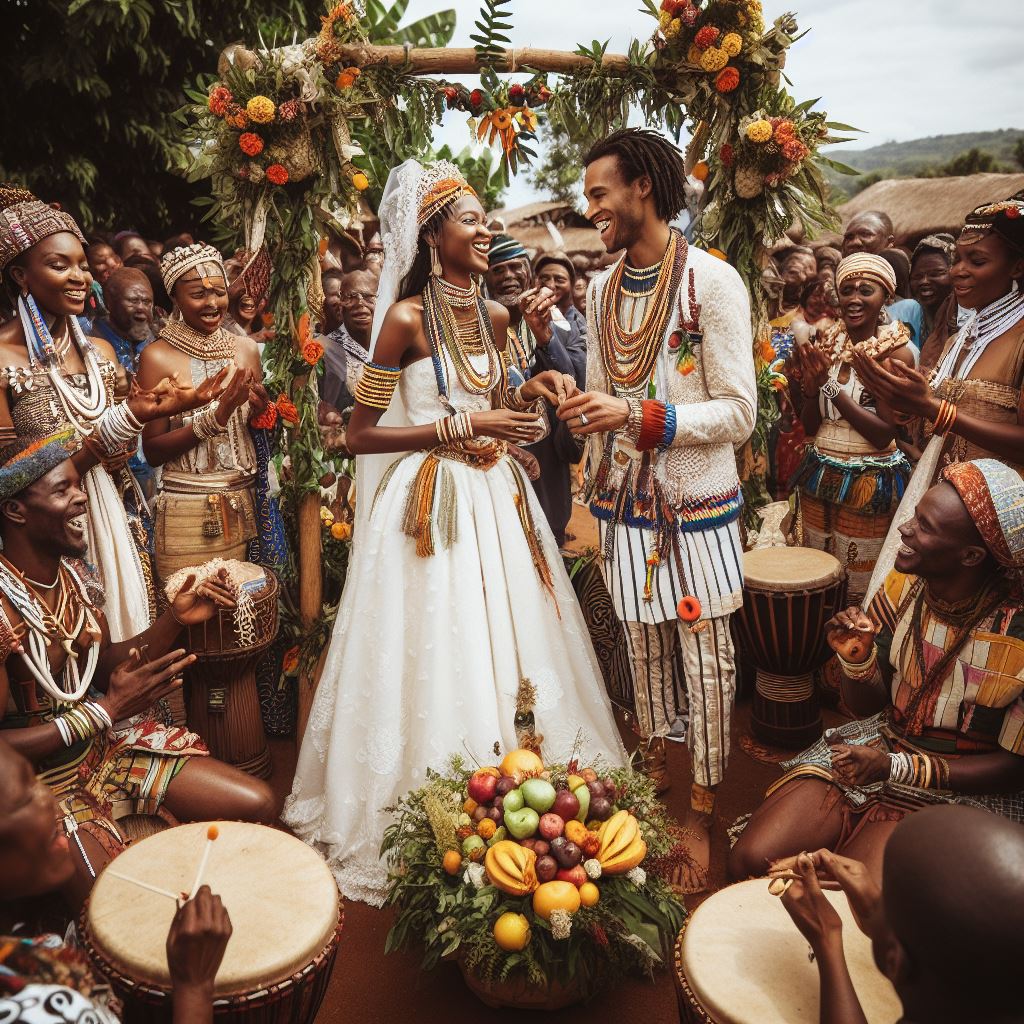Introduction
Modern vs. Traditional Views on Marriage
Within the intricate fabric of societal evolution, the concept of marriage stands at a crossroads, where modern and traditional viewpoints converge and collide.
Importance of Understanding
The importance of comprehending these shifts cannot be overstated. It grants us insight into the evolving nature of human relationships.
Preview of Main Points
As we embark on this section, be prepared to navigate the multifaceted landscape of marriage perceptions.
We will unravel the disparities, uncover the common threads, and traverse the dynamic terrain where modernity and tradition intersect.
Explore the shifting paradigms and join us in deciphering the intricate mosaic of contemporary and age-old beliefs surrounding marriage.
By doing so, you not only gain a deeper understanding of this timeless institution but also position yourself to adapt, respect, and appreciate the diverse views that shape the unions of today and tomorrow.
Traditional Views on Marriage in Nigeria
Historical background on traditional marriage practices
- Marriage in Nigeria has deep historical roots and is seen as a sacred and important institution.
- Traditional marriage practices vary across Nigeria’s diverse ethnic groups, each with its unique customs.
- These practices have been passed down through generations, preserving cultural traditions and values.
Roles and expectations of husbands and wives in traditional marriages
- In traditional Nigerian marriages, husbands are considered as the head of the household.
- Husbands are responsible for providing for the family and making important decisions.
- Wives are expected to be submissive and obedient, supporting their husbands in their roles.
- They are also responsible for taking care of the home, raising children, and maintaining family unity.
Influence of cultural and religious beliefs on traditional views of marriage
- Traditional views of marriage in Nigeria are heavily influenced by cultural and religious beliefs.
- Many ethnic groups in Nigeria practice arranged marriages, where parents and elders play a significant role.
- Religious beliefs, especially in Islam and Christianity, also shape the values and expectations of marriages.
- For example, in Islam, polygamy is allowed, and some communities still embrace this practice.
- In Christianity, the sacrament of marriage is considered sacred, emphasizing the commitment between a man and a woman.
Overall, traditional views on marriage in Nigeria are deeply rooted in history, culture, and religious beliefs.
These views highlight the importance of gender roles and the preservation of cultural and family values.
While traditional practices continue to hold significance, modern influences have started to shape the perception of marriage.
Changing views on marriage reflect the impact of globalization, urbanization, and education on Nigerian society.
The younger generation is increasingly questioning traditional gender roles and seeking more egalitarian partnerships.
Education and exposure to different cultures have also contributed to a shift in expectations and perceptions of marriage.
Women now aspire to pursue careers, exercise personal autonomy, and actively participate in decision-making processes.
Furthermore, the advent of social media and the internet has exposed Nigerians to diverse perspectives on marriage.
These changes challenge traditional norms and provide new opportunities for self-expression and individualism.
However, it is important to recognize that traditional views on marriage still hold significance for many Nigerians.
Read: The Role of Husbands & Wives: Exploring Ephesians 5
Modern Views on Marriage in Nigeria
Factors contributing to the changing views on marriage
As Nigeria evolves, several factors influence how people perceive and approach marriage in modern times.
- Urbanization and exposure to diverse cultures broaden perspectives on relationships.
- Education empowers individuals to question traditional norms and seek alternative ideas.
- Increased economic independence leads to a shift in priorities and expectations.
- Changing social dynamics challenge traditional gender roles and redefine marital responsibilities.
Emergence of love marriages and the prioritization of personal happiness
In recent years, love marriages have become more prevalent.
- Individuals desire emotional fulfillment and compatibility in their marital relationships.
- Choosing their partners based on love and personal happiness is given higher importance.
- The traditional practice of arranged marriages is gradually losing its appeal.
- Couples are more interested in pursuing personal fulfillment and happiness within their marriages.
Shift towards gender equality in modern marriages
Modern Nigerian couples strive for equal partnership and shared responsibilities
- Women are breaking free from societal expectations and pursuing careers alongside marriage.
- Men increasingly recognize the importance of supporting their partners’ ambitions and dreams.
- Couples are discussing and negotiating roles, responsibilities, and decision-making within the marriage.
- Gender equality creates a more balanced and fulfilling marital dynamic.
Influence of globalization and Western ideals on modern views of marriage
Nigeria’s exposure to new ideas and cultures reshapes notions of marriage.
- Western ideals, portrayed through media and popular culture, influence perceptions of romantic relationships.
- The concept of individual freedom and personal choice becomes intertwined with marriage.
- Globalization exposes Nigerians to diverse relationship models, challenging traditional norms.
- Western notions of love, companionship, and compatibility impact how Nigerians perceive marriage.
As Nigeria undergoes societal changes, the views on marriage have evolved significantly.
Factors such as urbanization, education, economic independence, and changing social dynamics have contributed to this shift.
Love marriages have gained popularity, as individuals prioritize personal happiness and emotional fulfillment within their relationships.
The traditional practice of arranged marriages is losing its appeal as couples seek companionship based on love and compatibility.
Nigerian women are breaking free from societal expectations and pursuing careers alongside marriage, while men embrace supporting their partners’ ambitions.
This shift in gender roles fosters equality and balance within modern marriages.
Globalization and the infusion of Western ideals into Nigerian society further reshape views on marriage.
Western media and popular culture portray romantic relationships with an emphasis on individual freedom and personal choice.
Exposure to diverse relationship models challenges traditional norms and encourages Nigerians to redefine their perception of marriage.
Modern views on marriage in Nigeria reflect changing societal attitudes. Love marriages, equality, and the influence of globalization and Western ideals have driven this transformation.
As Nigeria continues to embrace modernity, marriage will be viewed as more than just a traditional institution but as a platform for personal fulfillment, happiness, and mutual growth.
Read: Navigating Marital Challenges: Guidance from the Bible
See Related Content: Challenges and Joys: The Meaning of Marriage in Nigeria
The Clash between Traditional and Modern Views
Generational conflicts and intergenerational dynamics
- Generation gaps contribute to clashes between traditional and modern views on marriage.
- Older generations often adhere to traditional norms and struggle to accept more modern perspectives.
- Youthful rebellion against established conventions can lead to tension and misunderstandings between generations.
- Communication and understanding are essential in bridging the gap between traditional and modern views on marriage.
- Dialogue and empathy can help each generation embrace the positives of the other’s viewpoints.
Challenges faced by individuals who desire to defy traditional marriage expectations
- Breaking free from traditional marriage expectations can be a daunting and challenging endeavor.
- Individuals who choose alternative paths may face criticism and judgment from their families and communities.
- The pressure to conform can be overwhelming, making it difficult for individuals to confidently pursue their desired relationships.
- Supportive networks and a strong sense of self can empower individuals to overcome these challenges.
- Open discussions and education about different relationship models can help challenge traditional expectations.
Social pressures and judgments faced by those who choose modern views of marriage
- Choosing modern views of marriage may subject individuals to societal scrutiny and disapproval.
- Many fear being labeled as unconventional or selfish for prioritizing personal fulfillment and autonomy.
- The pressure to conform to societal norms can cause internal conflict and hinder personal growth.
- Supportive communities and finding like-minded individuals can help mitigate the negative effects of social pressure.
- Promoting inclusivity and understanding can reduce the stigma faced by individuals who choose modern views on marriage.
The clash between traditional and modern views on marriage is a complex and multifaceted issue. Generational conflicts, individual challenges, and social pressures all contribute to this clash.
However, through open dialogue, empathy, and support, it is possible to find common ground and acceptance for different perspectives.
Embracing the diversity of marital choices allows society to evolve and understand that love and commitment can manifest in various forms.
Read: A Lifelong Bond: Inspirational Bible Verses on Marriage
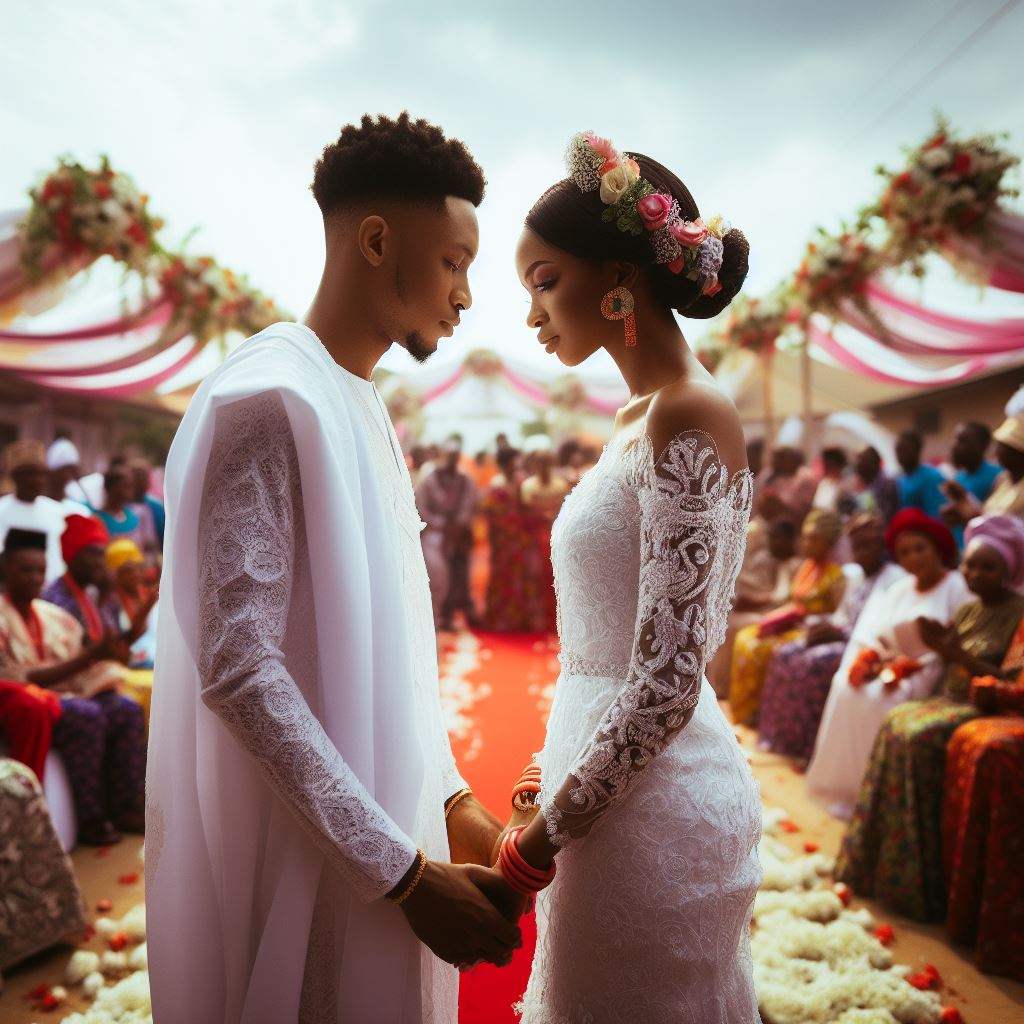
See Related Content: Nurturing Love & Understanding in the Nigerian Marriage
Discover More: 10 Powerful Scriptures for Nigerian Couples
The Benefits and Drawbacks of Modern Views on Marriage
Benefits of modern views, such as increased gender equality and personal fulfillment
- Increased gender equality in modern marriages allows for shared responsibilities and decision-making.
- Modern views on marriage prioritize individuality and personal fulfillment, promoting happiness and self-actualization.
- Gender roles are more flexible in modern marriages, allowing individuals to pursue their passions and career aspirations.
- Modern marriages encourage open communication and emotional support, fostering strong and intimate relationships.
- Equality in marriage helps create a balanced power dynamic, reducing the risk of abuse or dominance.
Drawbacks of modern views, such as potential conflict with cultural and religious norms
- Modern views on marriage may clash with cultural and religious norms, leading to social disapproval or exclusion.
- Emphasis on personal fulfillment can sometimes overshadow the commitment to working through challenges in marriage.
- Alternative relationship structures, such as polyamory or open marriages, can challenge traditional concepts of monogamy.
- Modern views may devalue the importance of traditional roles, leading to a decline in family values and cohesiveness.
- The emphasis on personal growth may lead to higher divorce rates as individuals prioritize their own happiness over commitment.
Balancing tradition and modernity: finding a middle ground
While both traditional and modern views on marriage have their advantages and disadvantages, finding a balance can be beneficial.
Recognizing and respecting cultural and religious norms can help bridge the gap between tradition and modernity.
Combining the core values of commitment, love, and respect with modern ideals of equality and personal fulfillment can create stronger marriages.
Communication and compromise are essential in navigating the complexities of modern views on marriage.
Viewing marriage as a partnership where both individuals have equal roles and responsibilities can lead to a harmonious and fulfilling relationship.
Striking a balance between tradition and modernity allows couples to create their unique marriage blueprint while honoring their heritage.
Ultimately, the benefits of modern views, such as increased gender equality and personal fulfillment, outweigh the drawbacks.
By embracing the positive aspects of both traditional and modern views, couples can build resilient and satisfying marriages.
Read: Commitment and Marriage: Bible Verses to Live By
Conclusion
In this blog post, we have explored the changing views on marriage and discussed its modern vs. traditional aspects.
It is crucial to encourage open-mindedness and acceptance of these evolving perspectives on marriage.
As we look towards the future of marriage in Nigeria, it is vital to prioritize mutual respect and understanding.
By acknowledging and embracing these changing views, we can create a more inclusive and harmonious society.
Marriage is a deeply personal and cultural institution that continues to evolve over time.
We must value and respect diverse perspectives and practices while upholding the core principles of love, commitment, and partnership.
Ultimately, the future of marriage in Nigeria rests on our ability to adapt, embrace change, and foster healthy relationships.
As societal norms transform, so too must our approach to the concept and institution of marriage.
By embracing these changes, we can ensure that love, respect, and understanding thrive in our relationships.
Let us look forward to a future where marriages are based on mutual happiness, equality, and the freedom to choose.
Now, more than ever, it is essential for us to uphold these values and create a better future for all.

